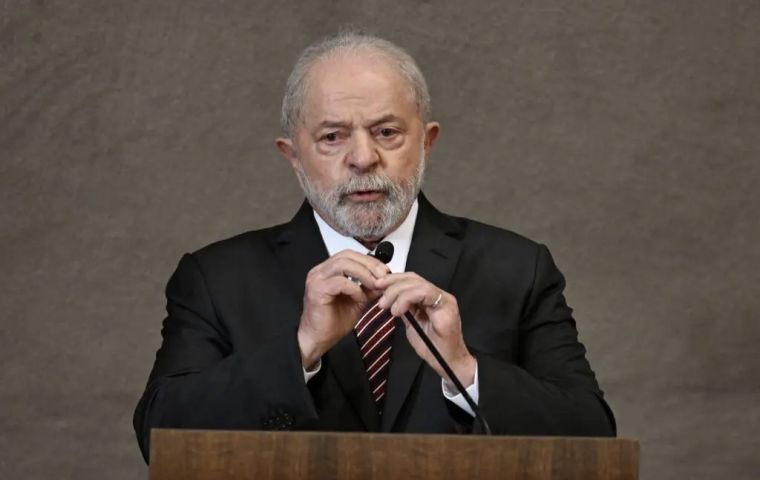MercoPress. South Atlantic News Agency
STF Judge says Lula's planned aid spending not bound by constitutional cap
 Many economists already fear Lula's unreserved social spending might start a perilous economic path
Many economists already fear Lula's unreserved social spending might start a perilous economic path Brazilian Supreme Federal Court (STF) Justice Gilmar Mendes Monday said additional expenditures for the Auxilio Brasil aid program in 2023 do not fall within the constitutional spending cap, thus clearing the way for President-elect Luiz Inácio Lula Da Silva to fulfill one of his campaign promises once he takes office Jan. 1.
Lula promised to maintain the R$ 600 (US$ 114) Auxilio Brasil plan for the neediest families, with an additional R$ 150 (US$ 28.5) for children under 6 years of age.
Mendes' opinion would allow Lula to make the disbursements without the changes to the Constitution currently under Parliamentary debate. The Senate gave the green light to a constitutional amendment (referred to as PEC) that frees R$ 145 billion (US$28 billion) outside the spending cap for the next two years, but negotiations have stalled in the Lower House, which is to vote on the issue between Monday and Wednesday.
Markets have reacted nervously to these announcements because of fears of an excessive increase in public spending under Lula's government, which is tantamount to about 2% of Brazil's GDP. It would also be the largest increase in public spending in a single year since the onset of the COVID-19 pandemic.
Despite the mantra repeated by Lula in the election campaign and statements in recent days of wanting to “include the poor in the budget and the rich in the income tax return”, the financial market has reacted badly to this PEC, which many expect to be reduced in the House vote.
According to the investment platform TradeMap, such a huge expenditure poses an inflationary risk while the exchange rate with the US dollar will drive interest rates upwards. From this angle, Lula's program resembles that of former President Dilma Rousseff, who was impeached in 2016 and under whom Brazil experienced its worst recession in the last hundred years.
A recent Central Bank report also warned of a possible GDP stagnation if the new government does not exercise fiscal responsibility. Many already fear Brazil might be going down a very dangerous economic path in the short term.
Last week, incoming Finance Minister Fernando Haddad tried to calm investors by saying that he will propose a “responsible” fiscal framework and that now is not the time to stimulate the economy by increasing government spending. Central Bank president Roberto Campos Neto told reporters last week that long-term inflation estimates are “partially” influenced by fiscal concerns. He also advised against an increase in subsidized credit, noting that it could reduce the “power” of Brazil's monetary policy.
Less than two weeks from Lula's inauguration, the idea of fiscal responsibility seems to be at odds with recent reports stating that the future government will have a total of 37 ministries, 14 more than under outgoing President Jair Bolsonaro.




Top Comments
Disclaimer & comment rulesCommenting for this story is now closed.
If you have a Facebook account, become a fan and comment on our Facebook Page!